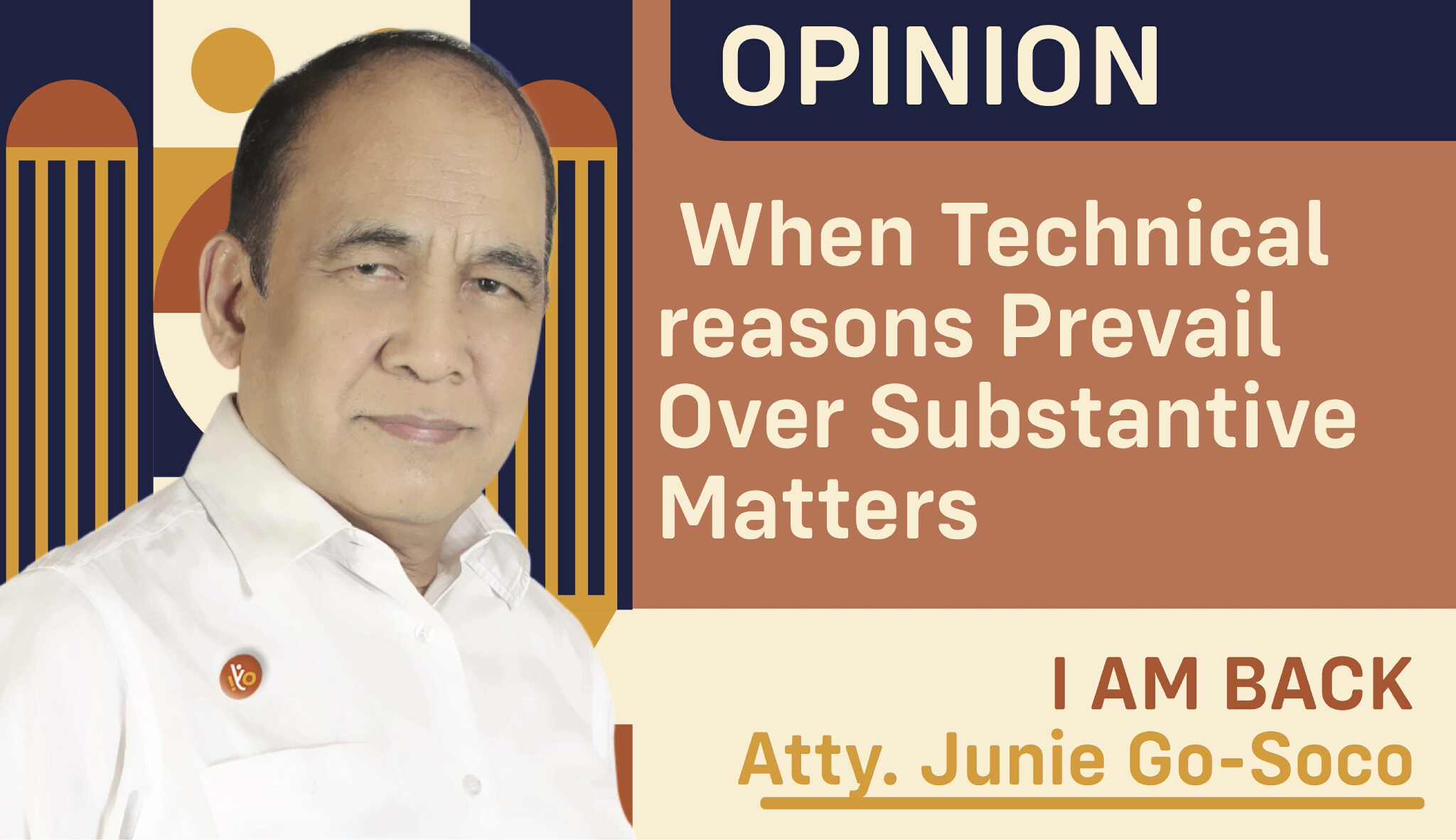The recent decision of the Supreme Court dismissing the impeachment complaint against Vice-President Sara Duterte has gripped the nation.There are those who hail it, and those who criticise it. It has sparked a healthy public debate that can only happen in a democracy.
The supporters of the Vice-President hailed the decision to dismiss as a major victory. Those who believe that the Vice-President is guilty of the impeachment charges, are questioning the bases of the Supreme Court decision and planning their next moves.
Here, I will share some views on the decision.
The decision to dismiss is based on a technical or procedural ground. The Supreme Court ruled that the submission of the Articles of Impeachment violated the one-year rule for the filing of an Impeachment complaint because the three complaints archived by the House of Representatives are considered complaints summited and effectively dismissed. In other words, these were counted in determining the periods concerned even if the House practically ignored them. These complaints seem to have been sufficient in form and substance, yet the House did not do much except to record them as having been submitted in December 2024.
The House of Representatives received the first complaint on December 2, 2024. Therefore, the complaint forwarded by the House of Representatives to the Senate on February 5, 2025 is a submission made two months after the first one was submitted. This being so, the House of Reprentatives violated the one-year ban stated in the Philippine Constitution.
As mentioned above, the ruling tackled technical matters. It was not based on the merits of the seven Articles of Impeachment. This characterization of the ruling often confuses many.
This decision means that there are two main ways of dismissing a complaint: one is for technical reasons, and the other is on substantive matters.
The Senate did not acquire jurisdiction because of the violation. Without the required jurisdiction, it cannot conduct hearings. The decision was made without prejudice. The complaint can be refiled by following the ruling of the Supreme Court on key dates in the impeachment process.
Those who signed the complaint may re-submit the same or an enhanced version but they have to make sure there is no violation of the one-year ban.
If the signatories do not want a hearing by the Committee on Justice and want speedy action, as may be expected considering the long wait, they have to submit it a day after the one-year ban expires, that is, on February 6, 2026.
The February 2026 date is less than seven months from now. It is only two months longer than the period it has taken the Senate to act on the current Articles of Impeachment..
Therefore, this time gap is manageable and one that Congress can patiently go through.
I can envision this scenario: An overwhelming number of members of the House of Representatives will endorse the Articles of Impeachment the second time around . The same Articles of Impeachment will be forwarded to the Senate on February 6, 2026.
It does not seem proper, necessary and logical to refer the impeachment complaint to the appropriate house Committe (Justice) for deliberation within sixty days and refered to the House on Plenary for forwarding to the Senate. The reason being that members of Congress do not have to go over a document they have signed unless there are subtantial changes such as adding articles to the seven already contained there. In any case, this mode is allowed in the Consititution.
The only must-do change would be in some of the signatories who may no longer be members of Congress and those who were not yet members in the last Congress.
This scenario may hold even if there is a Motion for Reconsideration which in the first place appears to be an exercise in futility.
On this aspect, I do not think that the Supreme Court will revise its 13-0 decision because Congress cannot refute the fact that there were submissions in December 2024 that the Lower House practically ignored. On this issue, I suspect this was done because these complaints were filed by groups that are not part of the Administration. In this context, waiting for the more than 200 Congressmen to sign the Articles of Impeachment became the weakness of this mode of referral to the Senate.
It was a clash between technical and sustantive factors. In this instance, technical factors won. Acquiring jurisdiction and following due process is essential in the rule of law.
Acquire jurisdiction first before looking at substantive matters. It is that simple.
#WeTakeAStand #OpinYon #OpinYonColumn #IAmBack
